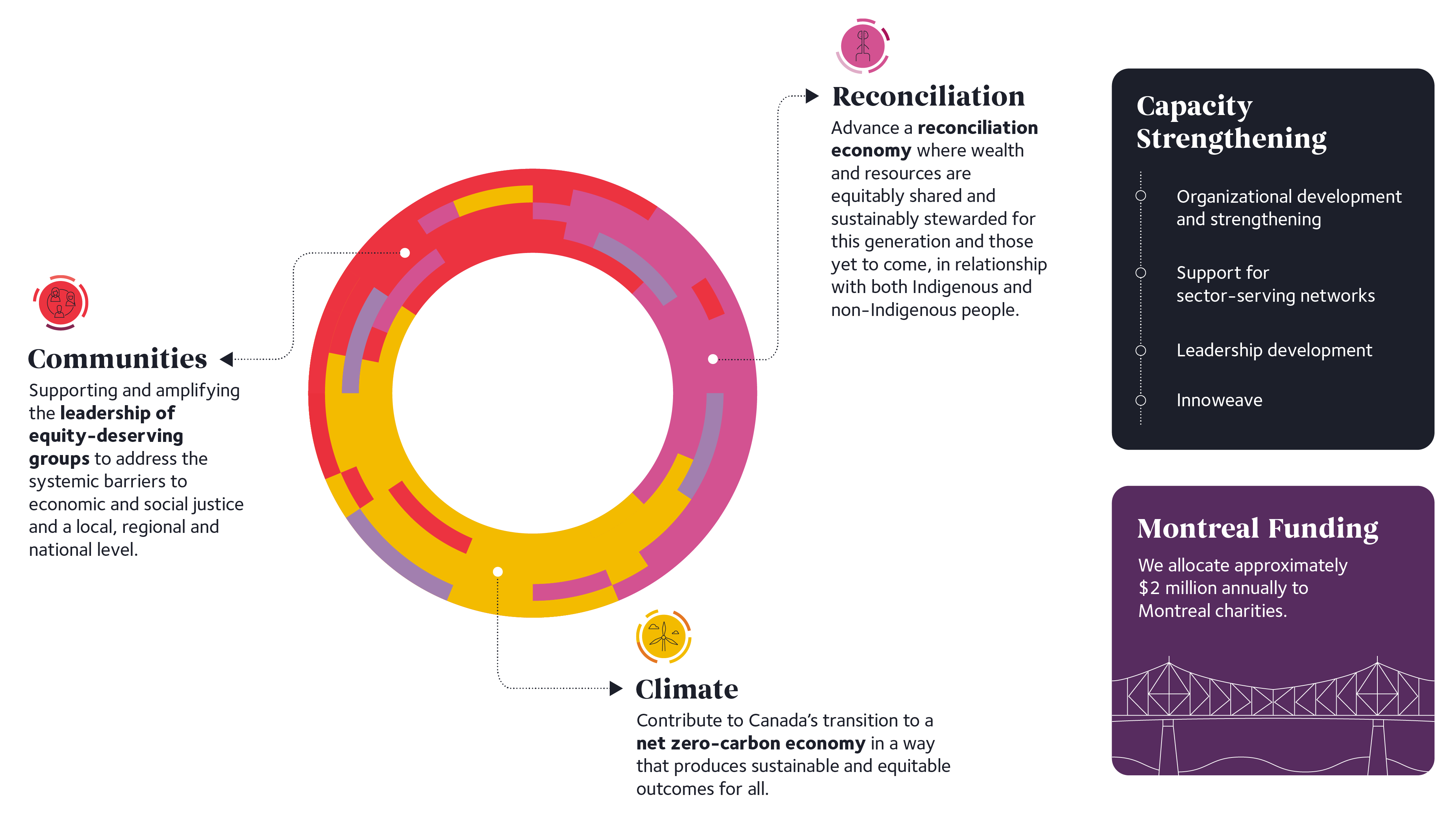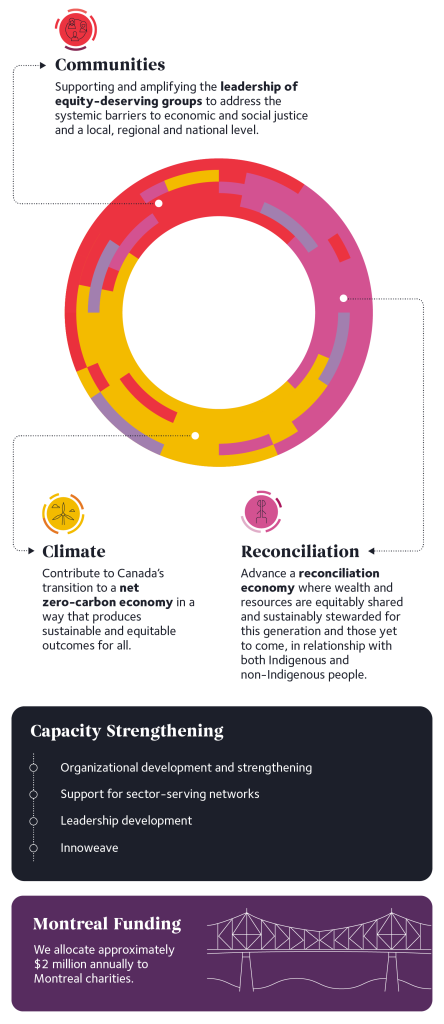Our focus areas
Our three main focus areas of Communities, Reconciliation and Climate represent what we believe to be some of the most pressing issues facing our society today. With our funding, we hope to help create significant positive impact and demonstrate that lasting change is possible across the country. Our focus areas honour the 85-year history of the Foundation and the legacy of our founder, J.W. McConnell, who sought to find solutions to some of the most important issues of his time.
While our focus areas tackle different issues, they are also interconnected. For example, we know equity-deserving groups are disproportionately impacted by climate change, and that Indigenous leadership is essential to the clean energy transition. While you must choose one focus area to submit under, there is space to identify linkages with other areas.
Additionally, we support partners to strengthen organizational capacity and leadership through our Capacity Strengthening stream. We also occasionally direct modest amounts of funding to support unique and time-sensitive needs through our Opportunity funds, or to organizations that seek to test a new idea aligned with our focus areas through our Program Development funding. These contributions are discretionary and cannot be applied for. Finally, acknowledging our special relationship with our home city, we fund organizations dedicated to improving the lives of Montrealers.
To explore your project idea, or if you are unsure which focus area is right for your application, we invite you to book a 15-minute Virtual Office Hours appointment with a member of our program team. They will help you explore potential alignment between your project and our focus area funding and guide you to resources you may need as you consider applying.














